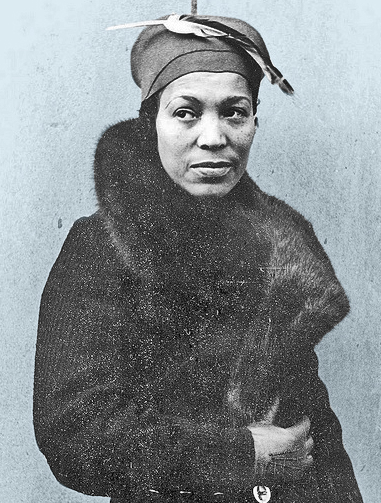Zora Neale Hurston’s 1948 arrest taught me some thangs

In September 1948, Zora was arrested and charged with sexually assaulting a 10-year-old boy. He said Zora and two other adults would pay him 50 cents to violate him and his friends. Prior to the arrest and dates of alleged assaults, Zora had been telling the boy’s mother, who was Zora’s landlady, to take her son in for a psychiatric evaluation.
Come to find out: Zora wasn’t even in the country when the boys claimed that the assault had happened. She was in Honduras. Also, in the preliminary hearing, it was discovered that the boys had been having sex with each other.
The court acquitted her. The community stoned her though.
1. It be ya own people.
Someone leaked the news to Black media outlets and those newspapers stirred up the story, added all kinda sauce to it, and had a party with it. Her reputation suffered as a result of that. (Zora said a Black person working at the courthouse leaked it.)
2. Shame is powerful. Af.
She left New York and moved back home to Florida. Was suicidal for a minute too. She wrote to her friend Carl Van Vechten: “No acquittal will persuade some people that I am innocent…All that I have believed in has failed me. I have resolved to die.”
3. We cannot count on the criminal justice system to do the right thing.
The boy admitted that he lied in November of 1948. The DA didn’t share that information or drop the charges, though, until March 1949. They sat on that very important information for four months.
4. You need a village before shit hits the fan.
It was hard for her to find work or continue publishing as she had been, so she cleaned houses, taught, and did some freelance writing. We can climb high, but we can fall hard too. And when they knock your crown off, you need more than accolades to hold yourself together. You need a village, people who give a damn about you. Not your fame. You! And you need to have had already created this for yourself.
5. Don’t expect your peers to step up.
Zora claimed that W.E.B. Dubois and Richard Wright used what happened to bury her greatness. Before her arrest, she had openly criticized their work. So it ain’t like they were BFFs. However, she wanted them, as journalists, to do the right thing. Investigate! Don’t just keep spinning the same tale. Do your research. Separate the truth from the myths. And if you turned out to be wrong, say you were wrong (publicly).
6. All health problems have psychological/spiritual causes.
She got sick, passed away at 69 years old, and was buried in an unmarked grave. Zora suffered from stomach ulcers, a stroke, then died of heart disease. Ulcers are linked to anger and not being able to fully express your feelings. People who suffer strokes “tend to become enraged and get burned out and resentfully burned up about the lack of recognition and support in their lives…They may have a ‘no one cares’ attitude” (Messages from the Body: Their Psychological Meaning by Michael J. Lincoln). The six stages of heart disease, according to Mark DeJesus, are: broken heart, fearful heart, angry heart, hopeless heart, hard heart, and a numb heart.
7. Krak ya Teet!
Zora spoke out about A LOT, which is why we now have a pretty good grasp of not only her talent but her personality, who she was. That includes her controversial position on Board vs. Brown, her letter explaining what happened with this case, and it includes the idea she proposed to W.E.B. DuBois. She said we needed a cemetery for Black celebrities. “Let no Negro celebrity, no matter what financial condition they might be in at death, lie in inconspicuous forgetfulness,” she’d urged. “We must assume the responsibility of their graves being known and honored.” She ain’t have no money when she died. Her Florida village mustered up some coins to bury her, but couldn’t afford the headstone. Alice Walker found Zora’s grave 13 years after she’d died and got a headstone that reads “Zora Neale Hurston: A Genius of the South.”
Your contributions allow us to pay black writers and artists, and get more creative and consistent in the content we deliver. We put a lot of time, love, and money into researching, writing, and sharing. Click here to learn more.

